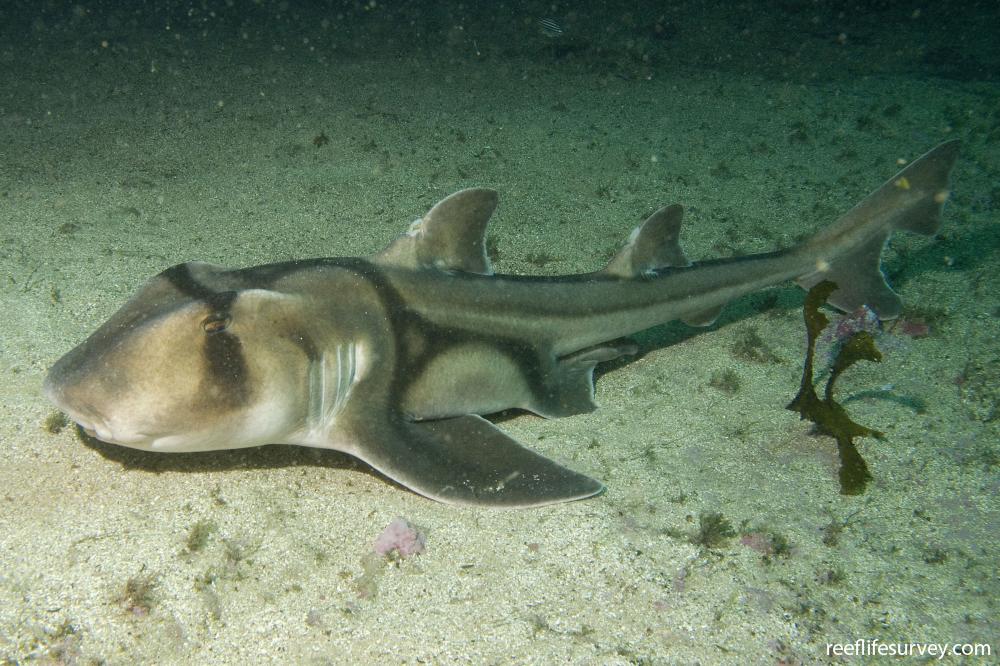Heterodontus portusjacksoni
Port Jackson sharkSimilar Species
Same Genus
Distribution
Temperate Africa, Temperate northern Atlantic, Tropical Atlantic/Caribbean
Description
The Port Jackson shark (Heterodontus portusjacksoni) is a nocturnal, oviparous (egg laying) type of bullhead shark of the family Heterodontidae, found in the coastal region of southern Australia, including the waters off Port Jackson. It has a large, blunt head with prominent forehead ridges and dark brown harness-like markings on a lighter grey-brown body. The species is not dangerous but should be handled with caution because it has a venomous barb in front of each dorsal fin. It also has strong jaws with plate-like teeth that are used for crushing bivalve molluscs.
Information
Max Size: 165 cm
Sea Temperature Range: 13-23.2°C
Depth: 1-275m
Habitat Generalization Index: 2.93
Also referred to as the SGI (Species Generalisation Index), this describes the habitat niche breadth of the species. Species with values less than 15 are found in a relatively narrow range of reef habitat types (specialists), while those over 25 may be found on most hard substrates within their range (generalists). Learn more here.
Conservation and Rarity
IUCN Status: Not Evaluated
Occurrence: Frequent (12.8% of sites)
Occurrence describes how often the species is found on surveys within its distribution. It is calculated as the % of reef sites surveyed by RLS divers across all the ecoregions in which the species has been observed
Abundance: Few (4 per transect)
Abundance is calculated as the average number of individuals recorded per RLS transect, where present.
Edit by: GJ Edgar. 2008. Australian Marine Life. New Holland, Sydney











